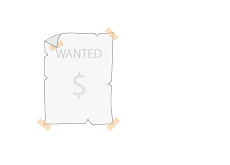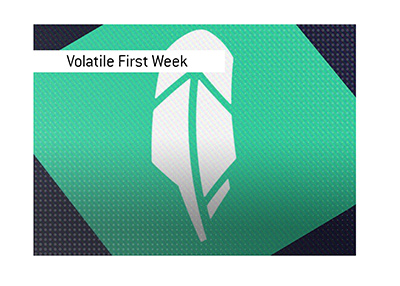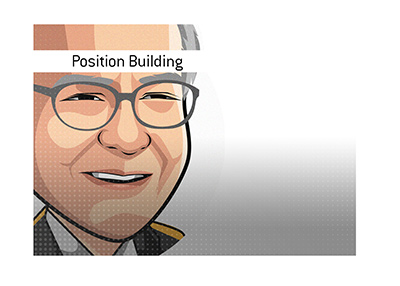$159,537 In Total Payments to Whistleblowers by the SEC Since 1989
 Earlier this week, SEC Inspector General H. David Kotz released a 40-page report titled "Assessment of the SEC's Bounty Program". I have linked to this document below.
Earlier this week, SEC Inspector General H. David Kotz released a 40-page report titled "Assessment of the SEC's Bounty Program". I have linked to this document below. In this report, Kotz analyzed the SEC's Bounty Program and how it could be improved to help nab more perpetrators of securities fraud.
In his recently released book "No One Would Listen: A True Financial Thriller", Harry Markopolos (the guy that tried to warn the SEC multiple times about Bernard Madoff's fraud), pointed out that the SEC had a woefully inadequate system in place of compensating whistleblowers.
Whistleblowers, Markopolos argued, were taking on an extreme amount of risk by coming forward with their knowledge. They were risking their jobs, their friends and even their lives by relaying information about possible wrong-doings.
Because they were risking personal loss, Markopolos argued, whistleblowers should be fairly compensated by the government when somebody is caught committing securities fraud and is forced to cough up damages to the government.
Markopolos pointed out that the SEC does not have an effective bounty program in place, unlike the IRS or the Department of Justice. He claimed that the SEC made very few payments under its bounty program, and when it did, it only paid out for tips relating to insider trading. Outright fraud (such as the Madoff Ponzi scheme) was not included in the bounty program, according to Markopolos.
David Kotz's report from earlier this week helped to illustrate just how feeble and unsuccessful the SEC's bounty program has been.
Since its inception, the SEC has paid out a total of JUST $159,537. A total of five claimants have received money from the bounty program since 1989, with one claimant ("Claimant 4 in the report") taking home about $100k over three separate payments. This means that, when excluding Claimant #4 from the calculations, the SEC has paid out just $60,000 to four claimants from 1989 to 2009 under their bounty program. That's ridiculous.
What is the bounty program?
The bounty program authorizes the SEC to "award a bounty to a person who provides information leading to the recovery of a civil penalty from an insider trader, from a person who tipped information to an insider trader, or from a person who directly or indirectly controlled an insider trader."
And how much can people make under the bounty program?
"..the total bounty may not currently exceed 10 percent of the amount recovered from a civil penalty pursuant to a court order."
In addition, the SEC has sole discretion over how much is paid under the bounty program.
--
Given the amount of fraud that has taken place in the markets over the past 20 years, bounty payouts of just $160k over the past 20 years seem even more ridiculous.
Given how underfunded and understaffed the SEC has been, you would think that the government would be bending over backwards to institute a fair bounty program for the SEC. I mean, why wouldn't you want people like Harry Markopolos hunting down frauds for you? Markopolos, after leaving his job in 2004, started seeking out frauds for a living, and was just hoping to be fairly compensated by the government when he saw one of his targets brought to justice. It seems like a win/win for the government - they only pay out if they collect a civil penalty, plus they don't have to pay for the salary of a person like Markopolos who brought the case to their attention.
Instead, the SEC had a woefully inept program that made potential whistleblowers ask themselves the question - why would I put myself through this?
This is the point that Markopolos constantly made throughout his book - many whistleblowers were risking their jobs by coming forward, and were very reluctant to do so without the possibility of at least SOME compensation when the fraudsters were brought to justice.
--
Kotz contends that the exact details of the SEC's bounty program weren't widely known, even by people who were working at the SEC.
Kotz made a number of recommendations to enhance the effectiveness of the program, including making the bounty application process more user-friendly and adopting the practices of the more-successful IRS and DOJ bounty programs.
If the SEC actually started making sizable payments under its bounty program, then maybe more people would start coming forward with their knowledge of possible insider trading and securities fraud.
Source: Securities and Exchange Commission - Office of Inspector General
Filed under: General Market News



